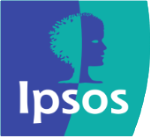Publish Date: Nov 13, 2019
Goal: In 2018 Ipsos published an open-source Women’s Empowerment Framework with the goal of influencing those working to empower women to apply considerations of self-perception, context, and cultural norms to their intervention design and measurement/tracking.
What it is: After engaging with multiple initiatives that had the goal of empowering women, Ipsos felt that existing models for conceptualizing women’s empowerment were incomplete or could not be effectively operationalized. The focus tended to be on “realities” - factors like access to and achievement in education, earnings and legal rights, and reported harassment and violence. While these factors are important indicators of progress towards equality, they do not tell the full story: simply because a woman earns an income, doesn’t mean she has decision-making power over that income; just because she is able to participate in the workforce doesn’t mean she can do so free from harassment in her workplace; she may have legal rights, but that doesn’t mean that exercising those rights is possible. To really understand whether a woman is able to realize equality, and to apply action where is it most needed, requires us to expand our focus to how she perceives her circumstances and abilities, and the structural and cultural norms in the spaces where she engages. Ipsos’ 12-dimension framework, and an aligned set of indicators and metrics, covers each of these dimensions across four spaces: self, household, work, and community, offering an actionable reference for the design and measurement of interventions to empower women.
Impact: To date, the framework has been applied in a range of settings, including in Ipsos studies in nine countries. The application of the framework has enabled intervention managers to understand the contextual and cultural drivers of the impact of their programs on women. Some of the interventions have published results, including the “Women & Water: A Ripple Effect” Study for USAID and Coca-Cola and the Ipsos Impact Assessments of the Mondelēz Cocoa Life Program.
CASE STUDY 1: WATER AND DEVELOPMENT ALLIANCE / USAID AND COCA-COLA: UNDERSTANDING THE EMPOWERING IMPACTS OF WATER PROGRAMMING ON WOMEN
- Overview: There was anecdotal evidence that their water interventions lead indirectly to women’s empowerment. The study was designed to investigate this hypothesis.
- Objective realities: Women’s lives improve when they are able to use a cleaner, closer water source. Impacts included: better health, time savings, education and income opportunities.
- The role of self-perception: As women’s role inside and outside of the household shifted, so did their self-confidence in what they are capable of in the workplace and community.
- The role of cultural norms: As women’s role inside and outside of the household shifted, communities began to see new value in women.
- Publication: https://www.ipsos.com/en/women-water-ripple-effect
CASE STUDY 2: MONDELĒZ INTERNATIONAL: EVALUATING THE IMPACT OF THE COCOA LIFE PROGRAM
- Overview: The Ipsos WE framework was integrated into the Cocoa Life impact studies to understand the Program’s progress on empowering women in Cocoa Life communities.
- Objective realities: Women have limited education and influence over how household income is spent, even when they generate it. They also have less access to farm inputs.
- The role of self-perception: Women have confidence in their abilities, particularly at the household level. They feel they lack the ability to participate in community decision-making.
- The role of cultural norms: Taking care of the household is prioritized over education and income generation. Participation in the community is confined to traditional roles for women.
- Publication: https://www.ipsos.com/en/empowering-women-more-sustainable-cocoa-communities
“Ipsos’ social impact team is dedicated to ensuring that precise measurement leads to deep learning and enables programs and campaigns to have the greatest possible impact. The WE framework ensures that when we measure women’s progress as individuals, employees, and community members, we do so in the context of self-efficacy and social norms, so that we are able to understand what is driving progress, and what is holding it back.”

